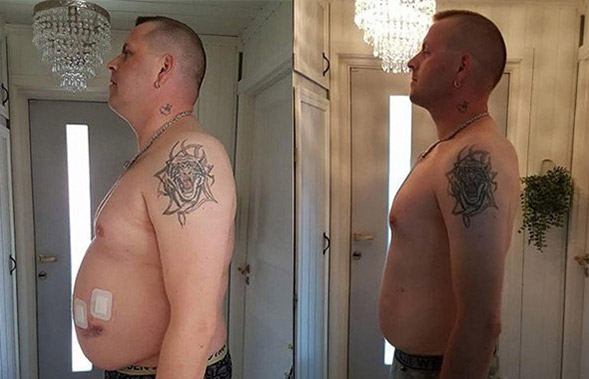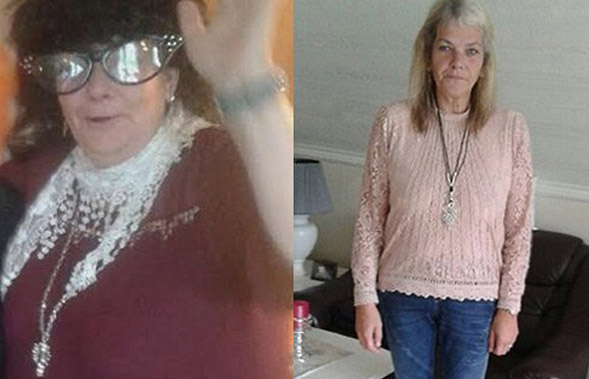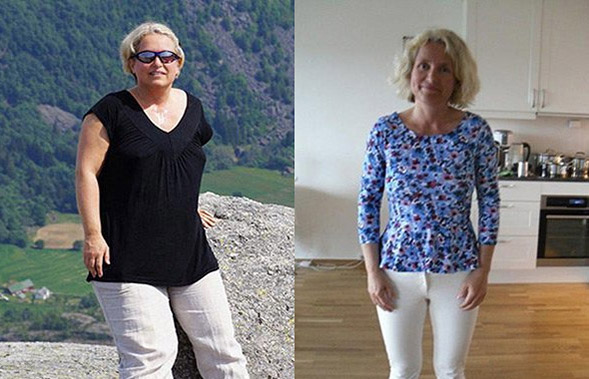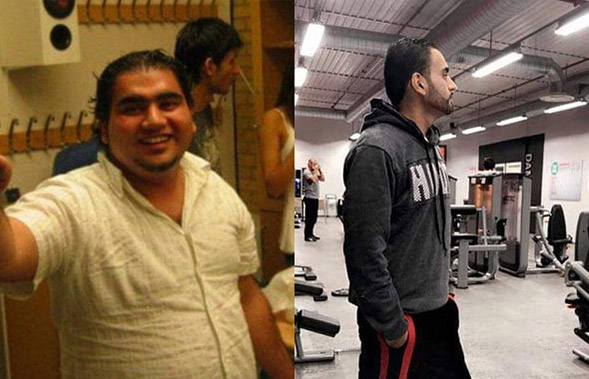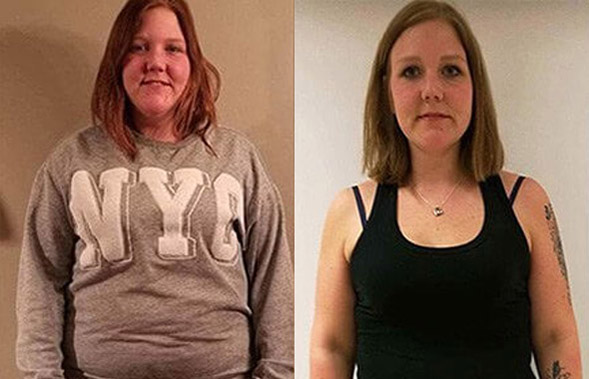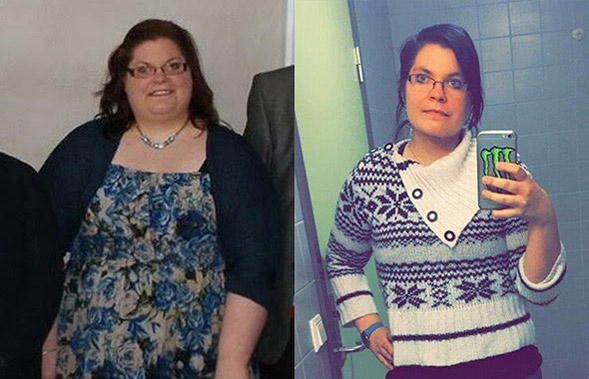Mona Karlsson – Patient Coordinator

Hi there, my name is Mona and I am very proud to say that I am a Patient Coordinator at Overvekts Operasjoner Riga. I’ve also had a Gastric Bypass with our outstanding Surgeon and am absolutely delighted with the whole experience. I lost my weight and slimmed down to my target weight within the first year! I would like to guide and help you with your special journey based upon my own experience of weight loss surgery.
I look forward to hearing from you.
Mona
Dr. Igors Troickis – Leading Bariatric Surgeon, 25 years experience, over 500 procedures annually

A highly acknowledged surgeon, with 25 years experience in general surgery and over 12 years experience in bariatric surgeries.
Head of Surgery Department at Riga hospital.
The surgeon performs over 500 procedures annually.
Specialities:
· Gastric Bypass, Mini Gastric Bypass
· Gastric Sleeve, Gastric Band removal
· Revisional Bariatric Surgery
| Gastric Balloon | BMI 27+ |
| Gastric Sleeve | BMI 30+ |
| Gastric Bypass | BMI 35+ |
Choose the procedure that suits you best
Weight: Kg | Height: cm |
10 Reasons to choose us
Efficient appointment system
We will endeavour to accommodate your needs when arranging appointments. Our surgeon will review your medical documentation and health questionnaire to assess your suitability for a surgical procedure, we then aim to offer you an acceptance for surgery date within one to two weeks.
A private contemporary surgical centre
Our clinic is designed to emulate the most modern medical institutions in Europe. Hotel style accommodation is offered, with a flat screen television, wifi and air conditioning to ensure a comfortable stay. There is the opportunity for a friend or a member of your family to stay with you in your private room, if necessary.
Extremely experienced surgeons and medical team
Our senior surgeon, who specializes in bariatric surgery, has over ten years experience in this field, and twenty five years experience in general surgery. The medical staff and surgeons have vast experience and knowledge.
Finest quality surgical equipment
The equipment we use is of the highest proven quality, it is supplied by: Storz, Johnson & Johnson, Ethicon and Covidien. We have opened four new operating theatres, which have been designed and equipped to the highest standard.
5 year follow up
We offer a five year follow up programme for patients who have undergone Gastric Sleeve or Gastric Bypass surgery and a one year follow up programme for patients with a Gastric Balloon. Our patient coordinator will be available to answer questions via email or telephone.
Half the price of Norway surgical treatment
With us you get the same (or an even better) service than that of a private clinic in Norway, for half the price. For approximately half the cost, we can offer a similar or a better service than most private clinics in Norway.
English speaking medical personnel
Our doctors, nurses and the other medical personnel speak English fluently.
Twenty four hour care
Medical care, given by doctors and nurses, is available on a twenty four hour basis.
Direct flights from Norway to Riga
There are direct flights from the Norway to Riga (RIX)., Norwegian Air fly from Oslo, Trondheim and Bergen. Wizz Air fly from Sandefjord. Flight connections are also available from the rest of Norway through hub in Oslo.
Surgeon’s liability insurance
A Surgeon’s liability insurance of 30 000 Euro is provided for the bariatric surgeons operating at our clinic.
BMI Range
Enter your body profile details to calculate the result.
Statistics show that a gastric sleeve is one of the most preferred weight loss operations and is gaining popularity due to its simplicity, low level of complications and amazing results.
However it is essential to follow all the rules before and after surgery to make it effective. Here are some recommendations.
Fatty liver disease and pre-surgery diet
The liver is located close to the stomach. When gastric sleeve surgery is performed using a laparoscope, a liver retractor lifts it up to give the surgeon access to the stomach. In most cases, people with weight problems also have a fatty liver; when fat cells cover the liver and lead to an impairment in its function. This condition also enlarges the liver, so in some cases the surgery may have to be performed by open surgery, or alternatively delayed, so that the patient can follow a 2-week pre-surgery diet. This will reduce the size of the liver and so the risks of complication reduces. As a bonus, this provides the means for you to be ready for the diet after the surgery.
The 2 week diet recommends increasing proteins like lean meats, and eliminating breads, rice and cereals, as well as all types of sugars.
Here is a typical nutrition plan, which will help with the surgery:
– For breakfast, you can have a good quality protein shake without sugar. They can be bought in any specialized store;
– Your lunch and dinner should consist of vegetables and lean meat;
– Don’t forget to drink water or any drink without sugar or high calories;
– You can have berries, salads and nuts as snacks.
– Two days before the gastric sleeve, you need to exclude caffeine and fizzy drinks. Some surgeons ask patients to follow a two day liquid diet.
Do not forget to follow all the recommendations carefully. For example, in our clinics we give patients all the information on menu types, possible meals and most favourable combinations to help prepare for surgery.
Nutrition after the operation
When gastric sleeve surgery is performed, you will need to follow the guidelines strictly to avoid complications and adjust to a new way of life.
In the first week, you will only be allowed to have clear liquids without sugar: water, broth, decaffeinated tea and coffee. Eliminate sugar, caffeine and carbonated beverages.
During the second week, you can add protein to the liquid diet. This might include pudding, soup, yoghurt or watery oatmeal. Remember that these meals should have reduced or no sugar.
The diet during the third week can be composed of soft pureed foods. Make sure you have enough protein, eat slowly and adjust to one new dish at a time. This week, you can add almond or coconut milk, hummus, soft vegetables and cheeses, scrambled eggs, canned salmon and soups.
Week four and beyond you can introduce real meals, but make sure you avoid sweets, fried foods and fizzy drinks.
If you follow all the recommendations, you will see how easy and fun it is to lose weight and introduce new, healthy habits into your lifestyle.
















